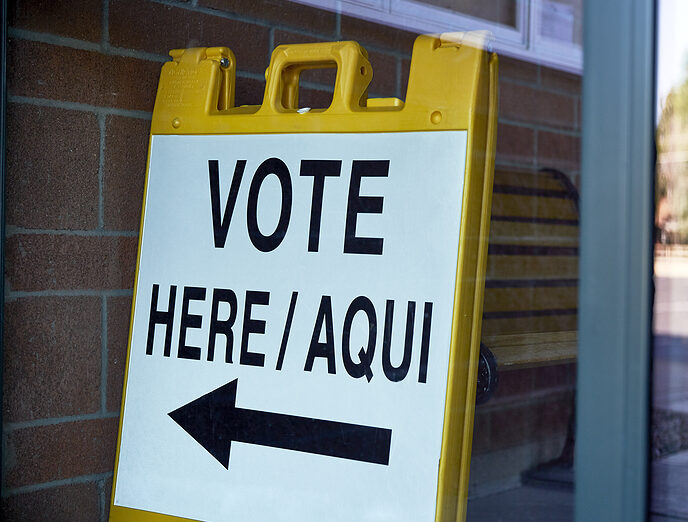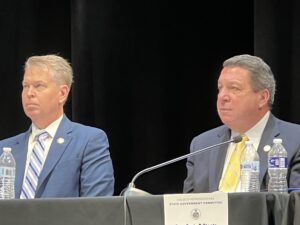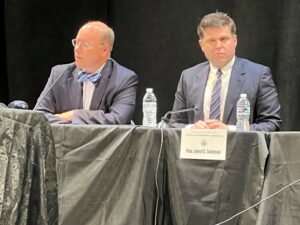POINT: Only Party Members Should Vote in Primaries

For another point of view see: Counterpoint: Open Primaries Increase Voter Participation
The right to vote is central to what it means to be an American. As someone who has been involved in politics and the political process for many years, I have a particular appreciation for the importance of how elections are run in this country.
In his farewell address to the nation, George Washington warned us, among other things, to do our best to avoid what he called “factions,” or political parties. Despite this guidance from our nation’s first President, almost immediately upon the end of his second term, two political parties emerged to dominate the conversation. While the names of the parties have changed over time, we have had a two-party system for nearly the entire life of the republic.
One feature of this two-party system, here in Pennsylvania, is the closed primary. Under the current rules, only voters registered with a given political party are eligible to vote in their Party’s primary, thereby choosing their Party’s candidates to appear on the ballot in the General Election in November.
There has been some recent discussion about opening Primary Elections up to voters who have chosen to not affiliate with either Party by registering Independent or No Party. Choosing to register this way is in and of itself a statement on a person’s political beliefs. However, I believe that deciding to do so, by definition, should preclude you from participating in either the Republican or Democrat primary process.
The argument generally goes that these voters, we’ll call them Independents for sake of conversation, typically align more closely with one Party or another, so they should be permitted to help select the candidates of their preferred Party.
However, if these Independents truly felt a loyalty or strong connection to one Party or another, they should register as such. Republican candidates should be chosen by Republican voters, and Democrat candidate should be chosen by Democrat voters. The Parties devote their time, talent, and resources to electing their chosen standard-bearers, and we should not permit non-members to be a part of that process.
I liken it to being a member of any club or an organization. Your membership in said organization confers upon you certain rights and responsibilities. You don’t get to cast a vote in a Rotary Club or Homeowners Association in which you aren’t a member, so why should we have a different standard when it comes to choosing candidates for office?
You have every right to choose to not align yourself with either Party, but that choice comes with the consequence that you do not have a voice in the primary election process of either Party.
We welcome and encourage registered Independents who share our values to join our Party. It can only make us stronger. However, until you are registered with a Party, I do not believe you should have any say in who represents that Party in the November election.
Please follow DVJournal on social media: Twitter@DVJournal or Facebook.com/DelawareValleyJournal





